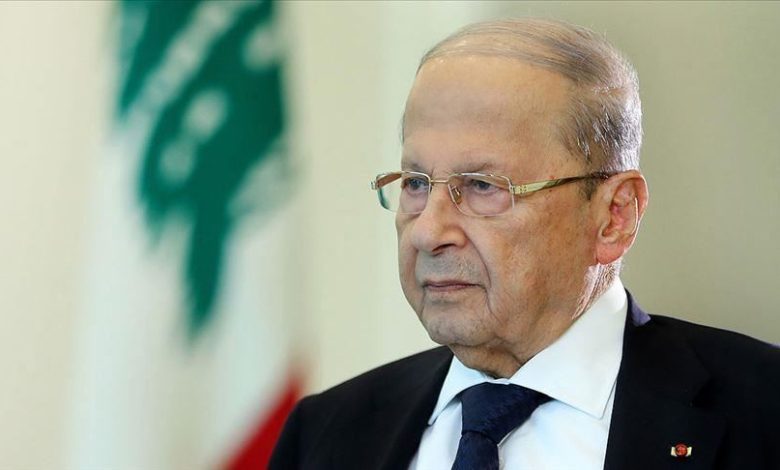Michel Aoun: 6 years of ‘divisions’ in Lebanon presidency

With a massive economic collapse and a huge explosion rocking Beirut, Lebanese President Michel Aoun leaves office Sunday, leaving behind a vacancy for the Baabda Palace’s seat of government.
“Aoun”, 89, is leaving the Lebanese Presidential Palace without a replacement so far in light of the inability of the parliament to choose his successor.
The president has the power to sign bills, appoint new prime ministers and give the green light to government formations before parliament votes on them.
For more than half of his time as president, Aoun’s rule was overshadowed by transitional governments, and perhaps another in 2022, when six months passed since the prime minister-designate attempted to form a government.
Reuters described Aoun as a “deeply divisive” figure, amid strong Lebanese criticism of him and accusations of enabling corruption and helping Hezbollah’s armed militia gain influence.
Six years ago, Aoun became president of Lebanon with the support of Hezbollah militias and rival Maronite politician Samir Geagea in an agreement that brought Saad Hariri back as prime minister.
What did Aoun do?
A year after taking office, the LAF entered into a fight with armed militants on the Syrian border in 2017 with the help of Hezbollah militias.
The 80th president also passed a new electoral law in 2018, before major energy companies were given free rein to explore offshore areas in 2020.
Six years of tension dominated, but in the last week of his visit to Baabda Palace, Aoun signed a US-brokered agreement to demarcate Lebanon’s southern maritime border with Israel.
Aoun’s soaring measures have long confronted Lebanese analysts, who consider them “modest successes” in light of the 2019 financial meltdown that has continued to plague the country.
More than 80 percent of Lebanon’s population has been impoverished, leading to the largest anti-government protests in recent history, according to Reuters.
The Lebanese do not forget the scenes of devastation in the capital after the 2020 bombing in the port of Beirut, which left more than 220 dead, a milestone in Aoun’s presidential history.
But he tried to justify his failure to make a decision regarding the “consignment of chemicals in storage,” saying that he was aware of it but that his presidential powers were not broad enough to address the economic crisis.
“He was by far the worst president in Lebanon’s history and I prefer him to have a vacuum in the presidency,” Lebanese lawyer Michel Maoushi told Reuters.
From exile to the presidency
Michel Aoun is the son of a farmer from a Beirut suburb who began his path to the presidency in the 1975-1990 civil war.
During the civil war, Aoun served as commander of the Lebanese army and head of one of two rival governments, before leaving for France in exile.
After 15 years in exile, Aoun returned to Beirut as soon as Syrian troops withdrew under international pressure following the 2005 assassination of former Prime Minister Rafic Hariri.
In 2006, Aoun’s Free Patriotic Movement formed an alliance with Hezbollah, providing important Christian support to the armed militias.
Aoun said he believes Hezbollah militias have played a useful role in acting as “deterrents” against any Israeli attacks during the maritime border talks.












